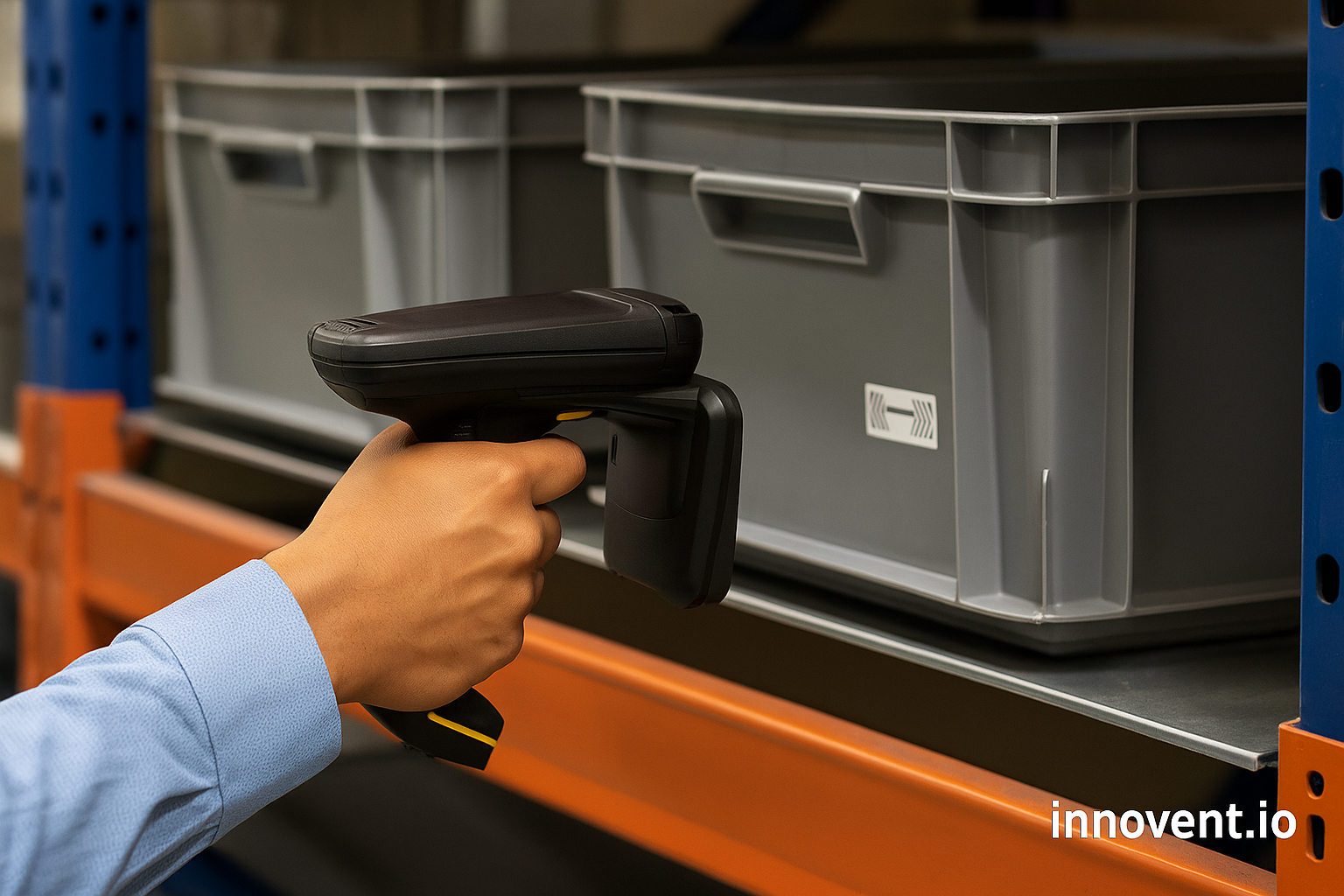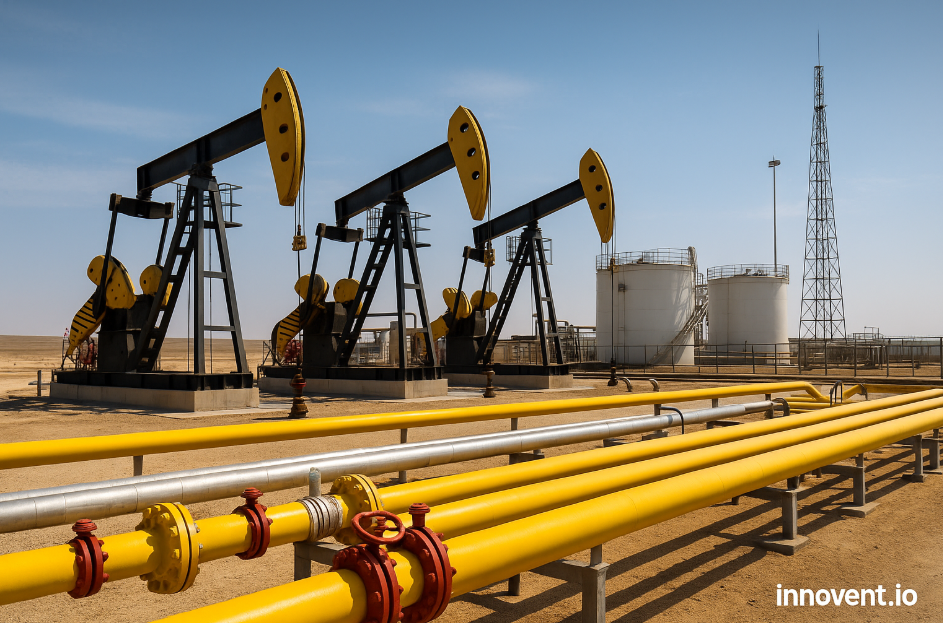UAE’s IoT Market in 2025: B2B Growth and Opportunities
The United Arab Emirates is experiencing a technology boom, with Internet of Things (IoT) adoption surging across industries. Analysts forecast the UAE’s digital technology sector – including IoT – will grow by about $3.8 billion in 2025, a jump of over 6% annually from 2025 through 2029. This expansion is driven by heavy government support and investments in 5G and smart infrastructure. In practical terms, businesses in manufacturing, energy, logistics, and healthcare are implementing IoT solutions in UAE to boost productivity, cut costs, and improve services. By 2025 the UAE IoT market is expected to reach several billion dollars, with the B2B segment leading the way as companies adopt smart sensors, asset tracking and connected devices.

Rapid Growth and Market Size
Industry reports show UAE’s IoT spending is rising fast. For example, the market for IoT in utilities alone generated $922.1 million in 2024 and is projected to double to around $1.83 billion by 2030. Overall tech services – which include IoT projects – are set to grow to about $4.79 billion by 2029. This momentum reflects a stable growth rate of roughly 8–9% CAGR in the IoT sector from 2025 onward. In practice, that means Dubai, Abu Dhabi and other Emirates will see continued investment in sensors, networks and cloud platforms. Companies are looking to big data and IoT solutions in UAE to gain real-time insights from connected machines, ranging from factory equipment to city infrastructure. As a result, both global suppliers and local IoT companies in UAE are expanding offerings in hardware, software and services to meet rising demand.
Smart Cities and Urban Projects
Smart city projects are among the most visible uses of IoT in the UAE. Sensors and cameras across Dubai and Abu Dhabi collect data on traffic flow, air quality, utilities and more. For instance, Dubai’s Smart City initiatives include IoT projects in UAE such as smart waste bins and intelligent street lighting, which signal when they need emptying or adjust brightness based on activity. These efforts not only make cities more efficient but also create opportunities for IoT solution providers in UAE. Telecom operators and tech firms supply IoT sensors in UAE for public transport optimization and predictive maintenance of infrastructure. These smart-city programs have significantly boosted IoT device sales and services. In short, the push to be “paperless and 100% connected” means public services in the UAE are a major driver of B2B IoT, with companies deploying urban IoT applications and IoT platforms in UAE tailored for city management.
Industrial IoT and Manufacturing
In the industrial sector, UAE manufacturers and oil & gas companies are rapidly adopting IoT. Factories and refineries use connected sensors and robotics to monitor equipment health and automate processes. Predictive maintenance systems rely on temperature, vibration and pressure sensors to forecast machine failures – reducing downtime. The UAE’s energy companies also deploy IoT for grid automation and remote monitoring of pipelines. Local industrial parks and free zones encourage this by partnering with IoT device management companies in UAE that offer cloud-based control of machines. Manufacturing and processing firms often work with IoT solution providers in UAE to implement Industry 4.0 technologies. Industrial IoT now accounts for a large share of the country’s overall IoT revenue. Estimates suggest UAE’s industrial IoT market alone could approach $700 million by 2025. Factory automation and industrial asset tracking are key areas of B2B IoT growth in the Emirates.
Logistics and Supply Chain
The logistics and transportation sector is another IoT hotspot. UAE firms like DP World and Emirates Post use IoT tracking for packages and freight. Cargo containers, trucks, and even delivery drones may carry IoT tags or GPS trackers so companies can monitor location, temperature and condition in real time. Warehouse operators are deploying IoT devices in UAE for automated inventory management, using barcode/RFID scanners and shelf sensors to update stock levels automatically. IoT platforms and big data and IoT solutions in UAE help optimize routes and reduce fuel use by analyzing traffic and weather data. In ports and airports, automated conveyors and baggage systems use sensors to improve throughput. These advances make the UAE’s logistics industry more efficient and highlight the role of many IoT solution providers in UAE and IoT startups in UAE that specialize in connected transport and warehousing.
Healthcare and IoT in Medicine
Healthcare is an emerging area for IoT adoption in the UAE. Hospitals and clinics are piloting remote patient monitoring. Wearable devices track heart rate or glucose levels and transmit data to doctors in real time. This trend accelerated after the pandemic, as telehealth solutions integrated more sensors and mobile apps. IoT is also used for hospital asset tracking, ensuring that critical equipment like ventilators and wheelchairs can be located instantly via RFID or BLE beacons. Smart hospital rooms adjust lighting and temperature through IoT controls to improve patient comfort. The UAE’s healthcare IoT market is expected to grow quickly, with spending estimated around $245 million by 2025. Local tech firms and IoT app development companies in UAE are designing custom healthcare IoT applications, while ministries regulate data privacy. IoT in healthcare exemplifies the B2B focus: solutions are sold to hospitals and clinics, not individual consumers.
Energy, Utilities and Infrastructure
In the energy sector, the UAE has invested heavily in smart grids and renewables with IoT technology. Dubai Electricity & Water Authority (DEWA) is rolling out smart meters and a smart grid with billions in investment to allow two-way communication with homes and businesses. This grid uses IoT sensors to detect outages and balance demand, while customers can use apps to monitor their usage. Solar farms in the UAE also use IoT for panel performance tracking. Beyond energy, smart building projects use IoT systems to optimize lighting, HVAC and security in offices and residences. Transportation infrastructure like bridges and tunnels is fitted with sensors to monitor structural health. These projects are often run by telecoms or engineering firms acting as IoT solution providers in UAE. The IoT in utilities market covering water, power and waste is growing at about 11% CAGR through 2030. The utility and infrastructure segment is a major beneficiary of B2B IoT investment.
Data and Security Considerations
As IoT usage grows, so do concerns around data management and security. The combination of big data and IoT solutions in UAE allows companies to analyze vast streams of sensor data for insights, but it also creates risk if systems are vulnerable. Cybersecurity is a top priority in the UAE. Organizations often perform IoT penetration testing and adopt best practices to protect industrial and urban IoT networks. Training courses on IoT security, as well as specialized IoT and robotics security solutions, are now part of the ecosystem. In industry, standards and certifications help ensure that new IoT deployments from energy grids to healthcare devices meet security requirements. The UAE’s focus on security, both in policy and in technical services, helps maintain confidence in IoT adoption, especially among B2B buyers who manage critical operations.
IoT Ecosystem: Companies and Talent
A broad ecosystem of vendors and service providers supports the UAE’s IoT growth. The market includes established multinationals and a growing number of local IoT startups in UAE. Many IoT companies in UAE offer consulting, system integration and platform services. Telecom operators and cloud firms provide IoT connectivity and IoT platforms in UAE, while local tech firms handle deployment and custom development. On the hardware side, companies sell sensors and devices—for instance, tracking tags and environmental monitors. The IoT devices market in UAE was nearly $1 billion in 2024 and is forecast to triple by 2030. Professional services are also expanding. IoT consulting companies UAE advise industries on digital strategy, and IoT training UAE programs help build skills. The ecosystem includes education too. Universities and private academies now offer IoT courses UAE and certifications. The UAE IoT market is supported by a network of solution providers, from device manufacturers and IoT device management companies UAE to app development agencies and big data and IoT integrators.
Innovent.io is one notable player in this growing market. As a Dubai-based tech firm, Innovent develops end-to-end IoT and RFID automation solutions for B2B clients in healthcare, logistics, retail and manufacturing. Its offerings include an IoT device management platform and smart sensor networks that help companies track assets, manage inventory, and streamline operations. By partnering with enterprises and government entities, Innovent.io contributes to the UAE’s IoT ecosystem, helping organizations deploy connected technologies efficiently. In a fast-growing market, Innovent.io exemplifies the type of IoT solution provider fueling the UAE’s digital transformation.
Sources:
UAE IoT in Utilities Market Size & Outlook, 2024–2030
https://www.grandviewresearch.com/horizon/outlook/iot-in-utilities-market/uae
UAE IoT Devices Market Size & Forecast, 2024–2030
https://www.grandviewresearch.com/horizon/outlook/iot-devices-market/uae
UAE Industrial IoT Market Overview, 2029
https://www.bonafideresearch.com/product/6407493915/united-arab-emirates-uae-industrial-iot-market
UAE IoT Healthcare Market Forecast to 2030
https://mobilityforesights.com/product/uae-iot-healthcare-market/
UAE to Revolutionize Power Grid with AI and IoT (DEWA’s $1.9B Smart Grid Project)
https://fastcompanyme.com/news/uae-to-revolutionize-power-grid-with-ai-and-iot-in-dewas-1-9-billion-smart-grid-project/
UAE Strengthens Cybersecurity with New National Policies
https://www.secureworld.io/industry-news/uae-cybersecurity-policies
Top IoT Development Companies in UAE – Clutch Directory
https://clutch.co/ae/developers/internet-of-things
How IoT is Shaping the Future of UAE’s Smart Cities
https://uaestories.com/the-uaes-smart-city-transformation-how-iot-is/
IoT in UAE Smart Cities – Competenza Blog
https://competenza.ae/blog/iot-in-uae-smart-cities/
UAE’s Logistics Transformation Using IoT and Emerging Tech
https://tlimagazine.com/news/the-uaes-path-to-becoming-a-global-logistics-hub/









